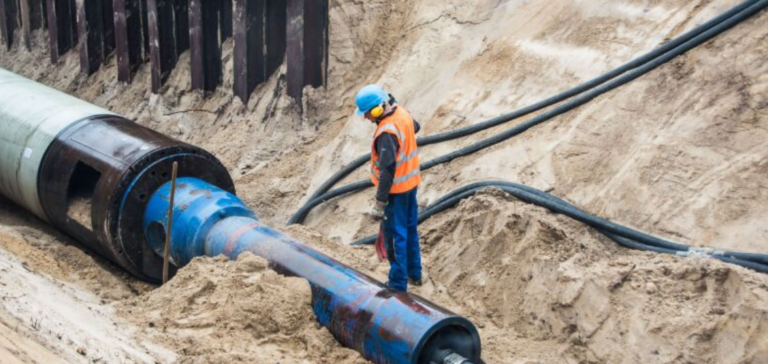The global energy industry is on the brink of a radical transformation with the signing of a Framework Agreement between EnBW Energie Baden-Württemberg AG, Zenith Energy Terminals, GasLog and the Port of Amsterdam. In fact, this collaboration aims to establish a green hydrogen connection between the Port of Amsterdam and EnBW’s facilities in Germany, an ambitious project that could redefine Europe’s energy supply.
EnBW’s Vision: Energy Security and Decarbonization
EnBW, renowned for its commitment to the energy transition, focuses on renewable energies, power grids, telecommunications, electric mobility and sustainable energy solutions. Peter Heydecker, Executive Director of Trading at EnBW, emphasizes:
“We are exploring several avenues for hydrogen transport, to ensure the security of renewable energy supply and limit the use of fossil fuel-based energy sources, actively contributing to the decarbonization of our economy.”
The Port of Amsterdam: A Key Hub for Green Hydrogen
This liquid hydrogen corridor, located between the port and the EnBW facilities, will play a key role in supporting German industries in their decarbonization efforts. Indeed, this aligns with the shared ambitions of the Dutch and German governments, with the Netherlands seeking to become the gateway to a corridor connecting external producers to key German industries.
Strategic Partnerships for Sustainable Energy
As a global energy hub, the Port of Amsterdam is prioritizing the development of green hydrogen capacity, seeking to become a gateway to Europe by establishing viable import corridors with key producing nations such as Oman, Spain, Saudi Arabia and the United Arab Emirates. Dorine Bosman, Investment Director at the Port of Amsterdam, adds:
“This agreement is testament to the compelling proposition that the Port of Amsterdam, Zenith Energy Terminals and GasLog have developed for the German market. EnBW is a reputable and visionary partner, and we look forward to jointly realizing a renewable energy supply with the objective of decarbonizing German industries.”
EnBW: Pioneer in the Transition to Clean and Renewable Energy
The agreement also covers the evaluation of alternative hydrogen transport modalities, building on the work of the Dutch and German governments in the planned development of an extensive cross-border pipeline infrastructure. What’s more, with 27,000 employees, EnBW is one of the largest energy supply companies in Germany and Europe, serving around 5.5 million customers. Between 2023 and 2025, EnBW plans gross investments totaling €14 billion, mainly in accelerating the implementation of the energy transition. Indeed, the company is aiming for renewable energies to account for more than half of its production portfolio by the end of 2025 and to phase out coal by the end of 2028, key steps towards carbon neutrality by 2035.
The Framework Agreement signed between EnBW, Zenith Energy Terminals, GasLog and the Port of Amsterdam marks a major turning point in the supply of renewable energy. With the creation of a green hydrogen corridor, these entities are ushering in a new era in energy transition, promising a significant impact on reducing Europe’s carbon footprint and promoting sustainable energy.






















